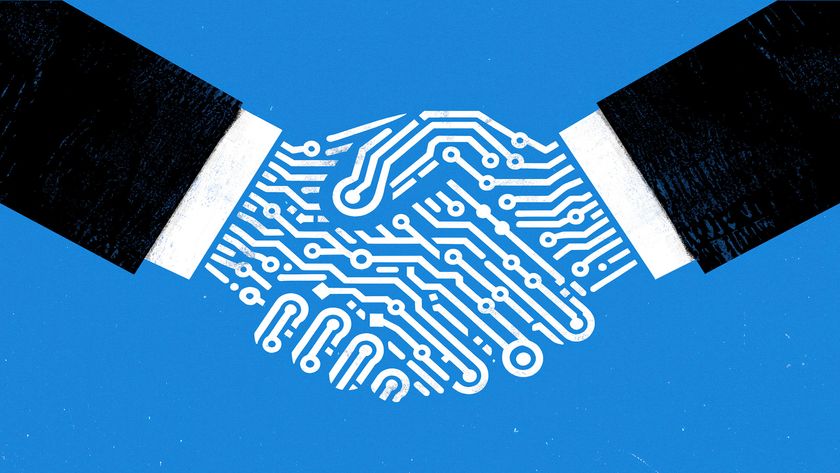The Bitcoin business: Securing your crypto-currency
For many, Bitcoin remains clouded in confusion. Davey Winder explores what it is and how to use it securely.
It's a decentralised peer-to-peer payment network which has, since Nakamoto left the project in 2010, gone on to have a great many developers working within the open community to facilitate growth. It's not owned by any corporation, but rather it is controlled by each and everyone who uses it.
One of the problems with Bitcoin is that the very fact that it isn't under the same scrutiny as other forms of currency. It's unregulated and decentralised, putting it firmly on the radar of cyber criminals.
Although the average user will only see a wallet app that lets them buy Bitcoins and then spend them, what's actually happening is that the ledger I mentioned earlier (the block chain) is being shared by the Bitcoin network and contains every transaction ever processed, protected by digital signatures for authenticity. Users who help with processing these transactions get to earn Bitcoins as a reward, or the mining as also mentioned.
The Bitcoin FAQ itself describes the mining technical process as follows:
"For new transactions to be confirmed, they need to be included in a block along with a mathematical proof of work. Such proofs are very hard to generate because there is no way to create them other than by trying billions of calculations per second. This requires miners to perform these calculations before their blocks are accepted by the network and before they are rewarded. As more people start to mine, the difficulty of finding valid blocks is automatically increased by the network to ensure that the average time to find a block remains equal to 10 minutes. As a result, mining is a very competitive business where no individual miner can control what is included in the block chain."
Although the Bitcoin protocol itself is cryptographically secure, and so not open to undue manipulation or control, what about that ledger of transactions? Wouldn't that be open to abuse by those who share it?
Although everything is digitally signed and payments can be made without any personal information attached to the transaction itself, anonymity isn't really protected. Think of Bitcoin as being pseudo-anonymous if you like, in that it lets you have an account without divulging any personal information, but once you start spending Bitcoins there is a transactional chain that knows who sent what and where.
Although for most intents and purposes this is pretty good privacy, if your name isn't explicitly linked to a Bitcoin account it could be victim to big data analysis methods in order to suck enough information out to de-anonymise the transactions in a real-world way. There are Bitcoin laundering services already in operation that will provide workarounds to those needing total anonymity in their transactions.
Get the ITPro. daily newsletter
Sign up today and you will receive a free copy of our Focus Report 2025 - the leading guidance on AI, cybersecurity and other IT challenges as per 700+ senior executives
What's wrong with it?
One of the problems with Bitcoin is that the very fact that it isn't under the same scrutiny as other forms of currency. It's unregulated and decentralised, putting it firmly on the radar of cyber criminals. That, and the small matter of it being a very volatile currency when it comes to value - a volatility that has so far seen some truly spectacular increases in the exchange rate.
Playing fluctuations in the value of any currency has traditionally been a sport of choice for rich investors and gamblers (also known as bankers), but Bitcoin has attracted criminal concerns external to the usual money markets like moths to a flame. The attraction is a simple one, and can perhaps best be explained by the example of the CryptoLocker ransomware that proved to be so problematical as 2013 was coming to an end.
CryptoLocker, and excuse me for making this the very dumbed down explanation but this piece is about Bitcoin and not malware per se, is basically encrypted data on an infected machine or network and required payment of a ransom to purchase the decryption key to unlock that data. The ransom was demanded in Bitcoins, not least as this made it much harder to trace the criminal transactional bread crumb trail but also because the value of bitcoins tends to go up rather a lot.
Indeed, the gang behind CryptoLocker had to quickly lower the original ransom being demanded as the Bitcoin value had risen by such an amount that victims were unlikely to be able to pay it. The point being, a criminal concern can see a very short-term 'investment' in Bitcoin make a very quick, and very large, gain before cashing out and reaping the reward.
Davey is a three-decade veteran technology journalist specialising in cybersecurity and privacy matters and has been a Contributing Editor at PC Pro magazine since the first issue was published in 1994. He's also a Senior Contributor at Forbes, and co-founder of the Forbes Straight Talking Cyber video project that won the ‘Most Educational Content’ category at the 2021 European Cybersecurity Blogger Awards.
Davey has also picked up many other awards over the years, including the Security Serious ‘Cyber Writer of the Year’ title in 2020. As well as being the only three-time winner of the BT Security Journalist of the Year award (2006, 2008, 2010) Davey was also named BT Technology Journalist of the Year in 1996 for a forward-looking feature in PC Pro Magazine called ‘Threats to the Internet.’ In 2011 he was honoured with the Enigma Award for a lifetime contribution to IT security journalism which, thankfully, didn’t end his ongoing contributions - or his life for that matter.
You can follow Davey on Twitter @happygeek, or email him at davey@happygeek.com.
















